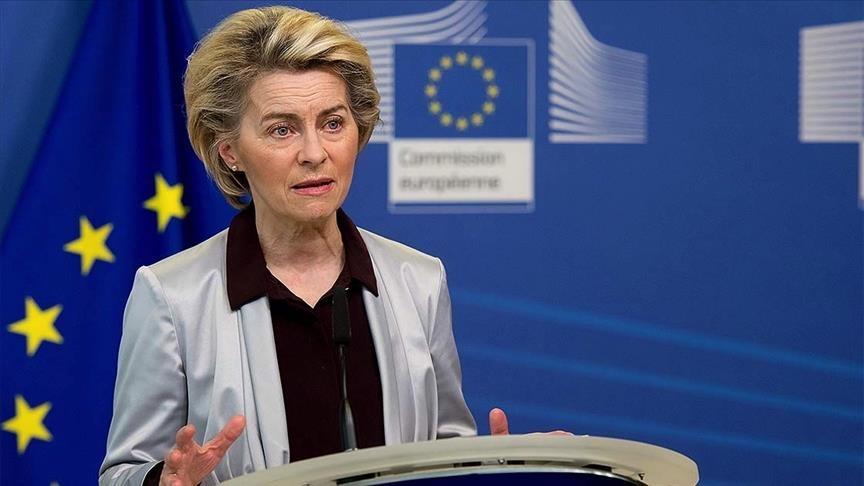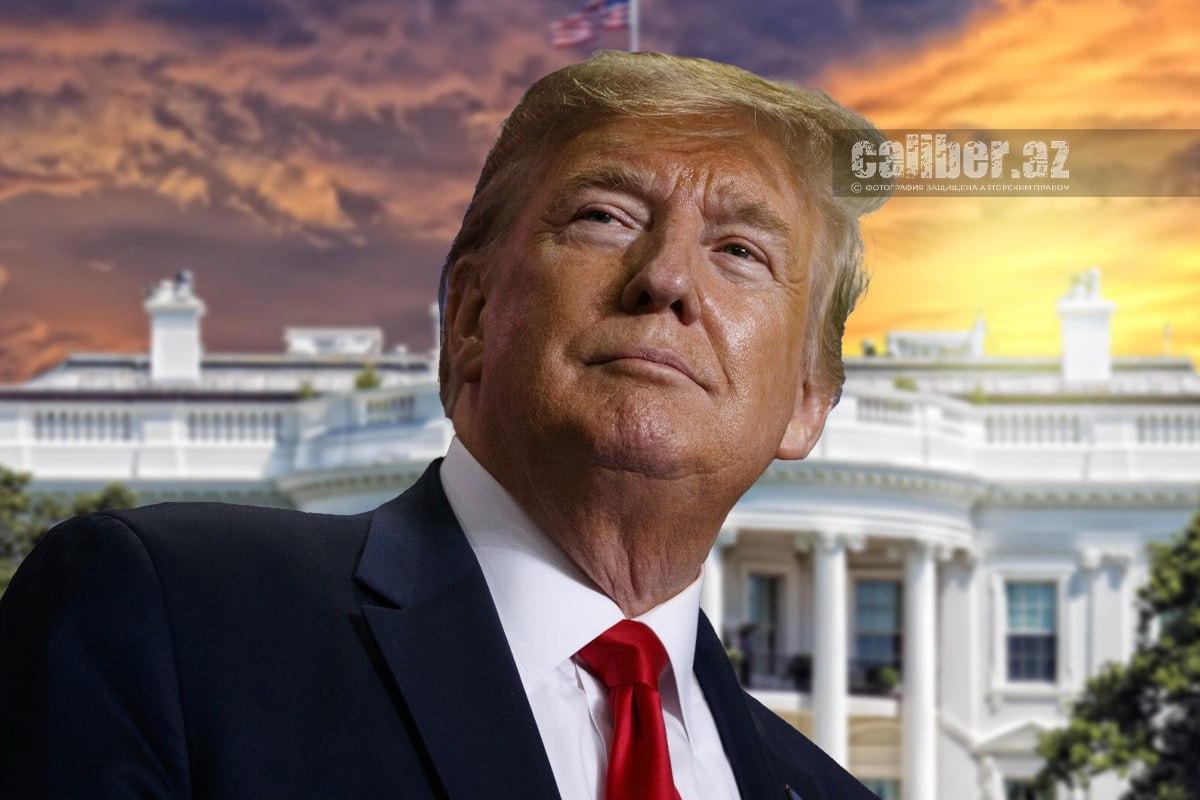EU: Power struggles take priority over saving European industry Von der Leyen’s power play
Starting from the New Year, the European Union will cease importing Russian gas via pipelines. This decision will trigger a significant economic transformation, shifting reliance to new suppliers of more expensive liquefied natural gas (LNG). At the same time, Brussels is attempting to dictate terms to these new suppliers. Recently, Qatar's Minister of Energy warned that his country would stop supplying gas to the EU if it attempts to impose fines on QatarEnergy under the pretext of human rights violations. The EU leadership's radical and ideologically driven policies repeatedly lead it into a deadlock.
Expropriation under the guise of a noble cause
The dispute between Qatar and Brussels arose over a corporate audit directive adopted in May. This directive allows the EU to fine foreign companies for "violating corporate sustainability criteria," which include non-compliance with Brussels-mandated standards on carbon emissions, labour rights, and human rights. The fines could amount to five per cent or more of a company's annual global revenue.
Qatar's Energy Minister, Saad al-Kaabi, clarified that there is no question of breaking existing contracts. However, his government has no intention of paying such fines, as doing so would mean surrendering the Qatari people's money to Brussels.
At first glance, Brussels appears to have devised a loophole to secure de facto discounts on increasingly expensive gas. However, this is only part of the motivation behind the initiative's authors. In reality, it represents yet another step in the radical policy pursued by the European Commission under Ursula von der Leyen—a strategy rooted in geopolitical expansion, power politics, and the imposition of EU norms.
From the moment she first took office in Brussels in 2019, von der Leyen left little room for subtlety. Her proposals were so uncompromising they bordered on pounding the table. She insisted it was time for the EU to learn to speak the "language of power," build its "muscles," and shed any reluctance in wielding "hard power"—a term she uttered with far less scepticism than "soft power." Moreover, she advocated for deploying hard power not only in military contexts (despite Europe's heavy involvement in three invasions—Afghanistan, Iraq, and Libya—followed by prolonged occupations) but also in trade.

There’s a reliable rule in Realpolitik: incessant talk about power often betrays incompetence and voluntarism. This has proven true in the case of the European Commission. After failing to effectively manage the pandemic response and prevent Russia’s invasion of Ukraine, Ursula von der Leyen’s team nonetheless continued to accrue more and more authority. Meanwhile, von der Leyen began crafting a new radical political agenda both within the EU and beyond its borders.
In other countries, liberal journalists would have long been decrying authoritarian tendencies and highlighting von der Leyen’s tenuous democratic legitimacy—after all, she was effectively selected and appointed throughout her political career. But when it comes to the EU, liberal media adopt a different tone, finding arguments to justify why von der Leyen should exert even greater control over Europeans.
As one Brussels correspondent put it with striking candour: “Some people around Brussels will tell you the softest thing about Ursula von der Leyen is her teeth. That is probably a little overdoing it. Realpolitik tells us you don’t get to head the executive body that drives an organisation comprising 27 nations and 450 million people without being extremely tough.” This sounds uncannily like an apologia for the Chinese Communist Party.
EU foreign policy: From conflict to conflict
The current dire state of the EU is, in part, a result of Ursula von der Leyen’s successful power struggle in Brussels, which involved betting on a radical, ideologically-driven course. Her overt push to appoint women to half of the positions in her team is emblematic of this approach—allowing her to clear out all opposition and shamelessly manipulate appointments under the guise of a pseudo-feminist agenda.
Moreover, von der Leyen’s policy flatters the EU establishment for another reason: it enables them to collectively claim the role of leader of the world’s liberal forces, a position that Washington’s elites have stepped back from with the return of Donald Trump.
In general, everything has been going wonderfully for Ursula von der Leyen in recent years. As Politico recently put it in quiet horror, "she developed a reputation for making unilateral decisions, overstepping her job description, cutting other EU leaders out of the decision-making, and speaking only to a handful of advisers. As a result, she gained the nickname Queen Ursula in Brussels." And after von der Leyen consolidated her control over the Brussels power vertical following her recent reappointment, some have even started referring to her as "Empress Ursula."
In recent weeks, the Brussels establishment and the major EU countries have begun to openly grumble. They cannot ignore how she, disregarding all objections from the automotive industry, imposed a brutal 38.1% tariff on Chinese electric vehicles last summer, using a compliant Latvian EU commissioner—who, due to her country's lack of industry, has no fear of a trade war with China. And just recently, von der Leyen enraged European leaders by signing a framework trade agreement with the South American bloc MERCOSUR on behalf of the EU. She had no mandate for either of these decisions, and in the process, they are cutting into the already struggling European industry and agriculture.
The results von der Leyen has achieved in consolidating her power and fending off accusations of unprecedented corruption are far from equivalent to her outcomes in advancing EU foreign policy breakthroughs. Her reliance on "hard power" has undermined the position of European engineering in China. In Ukraine, the EU's hardline geopolitical expansion only exacerbated the conflict. By making reckless promises to Kyiv, Brussels failed to ensure de-escalation with Russia or guarantee Ukraine’s security should such de-escalation fail.
Ultimately, within just a few years, the EU lost its largest markets and sources of raw materials in Eastern Europe and Eurasia. As a result, the legendary German chemical industry no longer exists. It wasn’t just about Russia—after severing ties with Moscow, the EU failed to secure reliable access to other countries in Eurasia.
None of the above outcomes were inevitable. It was entirely possible to recalibrate trade relations with China and Russia without conflict, and to prevent the war in Ukraine without abandoning European integration—if the EU had continued the pragmatic course of previous decades. However, under von der Leyen, the EU's trajectory has only been radicalised. A strategic approach has been completely absent. One need only look at how Brussels indulges Armenian revanchism instead of seeking new sources of raw materials and fuel for European industry through Azerbaijan, which controls the land routes from Europe to Central Asia in the current situation.
Attempts to build a strategic framework have been undone by the ideologically driven course set by Brussels.
The example of Qatar serves as a stark illustration of the EU’s flawed approach. After severing ties with Russia, EU countries turned to Qatar, the world’s sixth-largest natural gas producer. Recently, Qatar has become the third-largest exporter of LNG, behind the US and Australia. Just as the supply scheme was beginning to take shape, the European Commission intervened with a directive allowing it to seize part of suppliers’ profits under the guise of a "penalty." Given Brussels' previous tough stance toward non-Western countries, it's clear that this story is far from over. However, Qatar holds strong enough positions to resist Brussels' pressure. The likely outcome will be the further decline of European industry.
Checkmate for the EU: America's strategic move
Against the backdrop of current turmoil in European capitals, the U.S. strategy, even in these unstable times, appears more strategically sound. On December 20, newly elected President Trump outlined his demands for the European Union—to increase imports of oil and gas from the U.S. Otherwise, he would impose destructive tariffs on the import of machinery products from the EU. Losing the American market, in the context of already lost Russian markets and the current decline in trade with China, would be a death sentence for what remains of European manufacturing.

For Brussels, thanks to the direction of the current European Commission leadership, there are no alternatives but to accept Trump’s terms. In this instance, Trump is not indulging in voluntarism; rather, he is drawing on the results of U.S. foreign policy over the past few decades. The most significant achievement and hallmark of this strategy has been the "reset"—reducing communications between Europe and Russia back to the level they were at in the late 1960s, with some adjacent countries included.
The sabotage of the Nord Stream pipeline in 2022 was merely a part of a broader strategy to dismantle the pipeline network—encompassing gas, oil, and ammonia pipelines—along with the railways built during the Soviet era. The geopolitical significance of this infrastructure is difficult to overstate. However, while constructing it, the leadership of the USSR under Leonid Brezhnev made countless sacrifices and endured numerous challenges, understanding that each pipeline cemented economic ties with Europe for decades to come. The United States, on the other hand, actively obstructed this effort, even sabotaging pipeline deliveries.
Brezhnev even had the idea of incorporating Iranian gas fields and northern Iraqi oil sources into the Soviet pipeline network. However, the Iranian Revolution and the war with Iraq thwarted these plans. In any case, up until the early 2020s, Russia still held powerful channels for exporting its raw materials to the EU at prices that guaranteed a competitive edge over most rivals, primarily the U.S.
This system has been successfully dismantled in recent years, with the physical infrastructure now being taken apart—left idle, it cannot serve any purpose. In this context, Trump's decision to pressure the EU makes perfect sense, as he knows that the EU has no immediate alternatives to Russian supplies. Instead of negotiating long-needed deals for affordable deliveries from Azerbaijan or other Middle Eastern countries, Brussels has been preoccupied with expansion and ideological preaching.
De facto, the EU has largely shifted from cheaper Russian pipeline gas to more expensive liquefied natural gas (LNG), but still from Russia. This year, the EU imported a staggering two billion cubic meters of Russian LNG (for comparison, the EU, along with the UK, purchased 7.92 billion cubic meters from the U.S.). In doing so, Brussels has, by the way, reduced Moscow's reliance on transit through Ukraine—something the Kremlin is likely applauding. But the key goal has been achieved: pipeline gas supplies have been eliminated, making it difficult for LNG to compete with pipeline gas. This opens the door for Trump to demand that the EU stop this "charade" and replace Russian LNG with American LNG—at an even higher cost.
This is a difficult step for the EU, as it would solidify the U.S.'s monopolistic position in the European hydrocarbon market—a position that European politicians have historically opposed, fearing one country’s monopoly on energy supplies. It remains a realistic yet still unachieved goal for the U.S.: as of the spring of this year (no more recent statistics have been published), the U.S. supplied the EU with 47% of its LNG and 17% of its oil. The consequences of these "energy transitions" to increasingly expensive energy are somewhat softened by the fact that, in 2022–2023, gas consumption in EU countries decreased by an average of 14-15% due to reduced production. This trend will likely continue over the next couple of years, even with military orders in place.
As we can see, the EU has trapped itself in its current deadlock by rejecting pragmatic deals and falling under the influence of elites who, driven not by ideals but by a thirst for power, began implementing radical political agendas to strengthen their own authority. These agendas were based on geopolitical great-power illusions and liberal dogma. As long as Brussels remains ensnared by this metaphysical web, its wandering through dead ends will persist.








